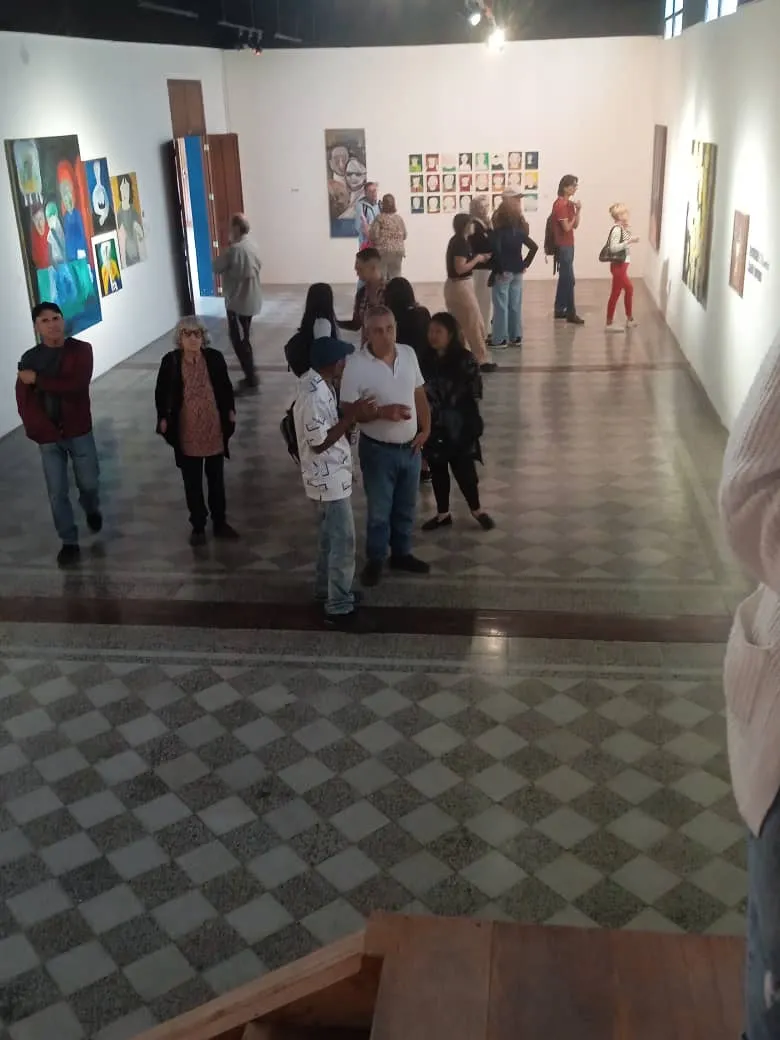Cuando hablamos de gratitud, nuestra mente se dirige casi automáticamente hacia los demás. Desde pequeños nos enseñaron a agradecer una buena acción o un trato amable, así que, para muchos, la gratitud es sinónimo de lo que recibimos de las personas a nuestro alrededor. Sin embargo, ser agradecidos también dice mucho de quiénes somos nosotros mismos, específicamente del valor que le damos a aquello que estamos recibiendo.
Entonces, comprendiendo la gratitud desde esta perspectiva, ¿Qué es realmente? Para mí, es un intercambio constante de empatía y alegría entre dos o más personas. Lo describiría como un ciclo que nos entrelaza: tú das para que yo pueda agradecer, y yo agradezco para que tú te sientas bien al dar.

Sin embargo, a veces llegamos a creer que el acto de agradecer es insignificante, y por eso muchos lo pasan por alto. A menudo se cataloga a estas personas como maleducadas, aunque yo prefiero llamarlas 'malemocionadas'. Mi razón es simple: agradecer no es solo algo que se aprende, sino también algo que se siente profundamente. Incluso si alguien ha tenido una educación escasa, el acto de recibir algo siempre alegrará el corazón. Y sería absurdo o irracional que un corazón alegre no sienta el impulso de agradecer.
Podemos imaginar infinitas situaciones en las que dar gracias parece lo más natural. Piensa, por ejemplo: cuando tu novio te regala flores, tu mejor amiga te invita a comer, o disfrutar de un excelente recorrido en un museo. En la mayoría de los casos que se nos vienen a la mente, agradecemos a alguien más y por algo que percibimos como relevante, especial o fuera de lo común.

Pero, ¿Qué sucede si lo que recibimos no es algo novedoso, o incluso es parte de una rutina diaria o de un servicio esperado? Consideremos situaciones como ir al supermercado a hacer compras, subirnos al autobús y agradecer al chofer al bajar, o que el vigilante nos abra la puerta al llegar a casa.
¿Es realmente necesario agradecer por cosas tan mínimas? En estas situaciones, es mucho más fácil dar por sentado el gesto, pensar que la otra persona "simplemente está haciendo su trabajo" o que es algo que "por deber debe hacer". Sin embargo, si recordamos que la gratitud es un ciclo de empatía, como hemos venido reflexionando, entonces dar las gracias se vuelve más que necesario, incluso en esos actos que parecen insignificantes.
En ese momento, el ciclo trasciende la simple alegría de recibir. Se convierte en un motor de motivación, de aprobación y de entusiasmo. Cuando agradecemos un buen servicio o un gesto cotidiano, no solo validamos a la persona que lo realiza, sino que también la incentivamos a seguir ofreciendo un trato excelente. Así, nosotros, como receptores, continuamos siendo bien atendidos, en un círculo virtuoso que beneficia a todos.
Así, en la aparente insignificancia de un simple agradecimiento, florece un profundo significado de valor y respeto mutuo. Este acto, aplicable en cualquier relación interpersonal, no solo fortalece los lazos, sino que también se convierte en una parte intrínseca de la personalidad tanto de quien da como de quien recibe. La gratitud, entonces, se integra en nuestro ser, moldeando cómo interactuamos con el mundo y cómo valoramos a quienes nos rodean.

Cuando mantenemos la gratitud siempre presente, agradeciendo tanto por lo relevante como por lo que consideramos insignificante, iniciamos una transformación inevitable en nosotros. Este hábito, practicado en cada situación, nos va liberando sutilmente de actitudes negativas. Muchas veces ni siquiera somos conscientes de estas actitudes, pero la gratitud actúa como un catalizador, ayudándonos a desprendernos de todo aquello que no es favorable para nuestro crecimiento y bienestar.
Agradecer es, en esencia, un acto sorprendentemente simple, pero su alcance positivo en la vida de las personas es inmenso. Y este impacto se magnifica aún más cuando la gratitud no se limita solo a lo que recibimos, sino que se extiende a lo que ya poseemos por el simple hecho de vivir.
A menudo, nuestra mente se enfoca obsesivamente en lo que nos hace falta, en aquello que aún no hemos alcanzado, y olvidamos descaradamente las bendiciones que ya logramos y, más aún, aquellas que por gracia divina siempre hemos tenido. Caemos en la trampa de dar por sentado lo "común": la comida en nuestra mesa, una cama y un techo bajo el cual dormir, la capacidad de usar nuestras manos y pies para trabajar, la vista para apreciar un amanecer. Estas son cosas que, por ser parte de nuestro día a día, dejamos de ver como los milagros que realmente son.
Sin embargo, cuando la gratitud se convierte en nuestro lente, la perspectiva cambia radicalmente. Ser agradecido nos libera del peso de la queja, de la angustia constante y de la espiral de la negatividad. Es como si una carga mental pesada se aligerara de forma drástica, permitiéndonos transitar por la vida con una tranquilidad mucho más profunda y duradera. La gratitud, en este sentido, no solo transforma nuestro exterior, sino que reconfigura nuestro mundo interior.
Considera, pues, que cada acto de gratitud, por pequeño que parezca, es como una semilla que siembras en el jardín de tu vida y en el de los demás. Con cada 'gracias', nutres un ciclo de empatía y positividad que crece y se expande, moldeando no sólo tu propia felicidad, sino también el ambiente que te rodea. Que la gratitud sea el hilo dorado que entrelaza tus días, un recordatorio constante de que la abundancia no es algo que se persigue, sino algo que se reconoce y se construye desde lo más profundo del corazón.

FULL ENGLISH VERSION
When we talk about gratitude, our minds almost automatically turn to others. From a young age, we were taught to express gratitude for a kind deed or gesture, so for many, gratitude is synonymous with what we receive from those around us. However, being grateful also says a lot about who we are, specifically the value we place on what we are receiving.
So, understanding gratitude from this perspective, what is it really? For me, it is a constant exchange of empathy and joy between two or more people. I would describe it as a cycle that intertwines us: you give so that I can be grateful, and I am grateful so that you feel good about giving.

However, we sometimes come to believe that the act of giving thanks is insignificant, and that is why many people overlook it. These people are often labeled as rude, although I prefer to call them “unemotional.” My reason is simple: giving thanks is not only something that is learned, but also something that is felt deeply. Even if someone has had a poor education, the act of receiving something will always gladden the heart. And it would be absurd or irrational for a glad heart not to feel the urge to give thanks.
We can imagine countless situations in which giving thanks seems most natural. Think, for example, of when your boyfriend gives you flowers, your best friend invites you to lunch, or you enjoy an excellent tour of a museum. In most cases that come to mind, we thank someone else for something we perceive as relevant, special, or out of the ordinary.

But what happens if what we receive is not something new, or is even part of a daily routine or an expected service? Consider situations such as going to the supermarket to shop, getting on the bus and thanking the driver when we get off, or the security guard opening the door for us when we arrive home.
Is it really necessary to express gratitude for such minor things? In these situations, it is much easier to take the gesture for granted, to think that the other person is “just doing their job” or that it is something they “have to do.” However, if we remember that gratitude is a cycle of empathy, as we have been reflecting on, then saying thank you becomes more than necessary, even in those acts that seem insignificant.
At that moment, the cycle transcends the simple joy of receiving. It becomes a driving force for motivation, approval, and enthusiasm. When we express gratitude for good service or an everyday gesture, we not only validate the person who performs it, but we also encourage them to continue offering excellent treatment. Thus, we, as recipients, continue to be well cared for, in a virtuous circle that benefits everyone.
Thus, in the apparent insignificance of a simple thank you, a profound meaning of value and mutual respect flourishes. This act, applicable in any interpersonal relationship, not only strengthens bonds but also becomes an intrinsic part of the personality of both the giver and the receiver. Gratitude, then, becomes integrated into our being, shaping how we interact with the world and how we value those around us.

When we keep gratitude ever present, giving thanks for both the important things and what we consider insignificant, we initiate an inevitable transformation within ourselves. This habit, practiced in every situation, subtly frees us from negative attitudes. Often we are not even aware of these attitudes, but gratitude acts as a catalyst, helping us to let go of everything that is not conducive to our growth and well-being.
Giving thanks is, in essence, a surprisingly simple act, but its positive impact on people's lives is immense. And this impact is magnified even further when gratitude is not limited to what we receive, but extends to what we already possess simply by being alive.
Often, our minds obsessively focus on what we lack, on what we have not yet achieved, and we blatantly forget the blessings we have already attained and, even more so, those that, by divine grace, we have always had. We fall into the trap of taking the “ordinary” for granted: the food on our table, a bed and a roof over our heads, the ability to use our hands and feet to work, the sight to appreciate a sunrise. These are things that, because they are part of our daily lives, we fail to see as the miracles they truly are.
However, when gratitude becomes our lens, our perspective changes radically. Being grateful frees us from the weight of complaint, constant anxiety, and the spiral of negativity. It is as if a heavy mental burden is drastically lightened, allowing us to move through life with a much deeper and more lasting sense of peace. Gratitude, in this sense, not only transforms our exterior, but also reconfigures our inner world.
Consider, then, that every act of gratitude, no matter how small, is like a seed you plant in the garden of your life and in the lives of others. With each “thank you,” you nurture a cycle of empathy and positivity that grows and expands, shaping not only your own happiness but also the environment around you. Let gratitude be the golden thread that weaves through your days, a constant reminder that abundance is not something to be pursued, but something to be recognized and built from the depths of your heart.


Translator DeepL